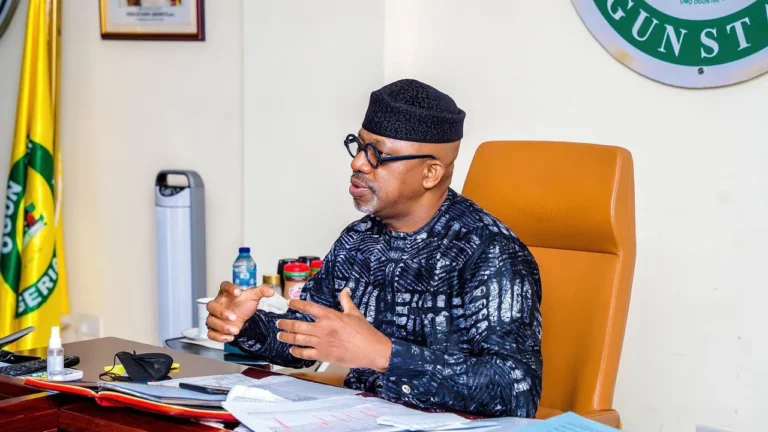
13th February 2025
Nigeria’s economy is suffering due to inefficient port operations, with Lagos ports handling over 80% of imports, leading to congestion and delays. The country loses an estimated N7.6 trillion annually due to these inefficiencies, making decentralization a necessity.
Efforts to break monopolies, such as the 2017 reforms by Hadiza Bala Usman, aimed to improve competition, but major challenges remain. The over-reliance on Lagos, outdated infrastructure, and high business costs continue to stifle economic growth.
Despite the opening of Lekki Deep Sea Port, congestion persists, increasing costs for businesses and disrupting supply chains. A 2020 World Bank report ranked Nigeria’s ports among the least efficient globally. The Lagos Chamber of Commerce and Industry (LCCI) estimates that delays and bottlenecks cost businesses over N2.5 trillion annually, affecting GDP, tax revenue, and job creation.
Recent attempts to introduce a National Single Window aim to reduce costs, but proposals like a 15% port charge increase face resistance. Manufacturers argue that higher costs will worsen inflation, reduce government revenue, and encourage smuggling.
Beyond manufacturing, inefficient ports worsen food insecurity by increasing prices and harming export competitiveness due to excessive bureaucracy. Nigeria’s push for a blue economy must align with existing federal structures to ensure fair regional development.
The Way Forward
Decentralizing port operations is essential. Activating ports in Calabar, Warri, and other regions would create jobs, reduce congestion, and drive regional economic growth. A well-distributed port system aligns with global best practices and ensures long-term economic stability.
Ending Nigeria’s port monopoly requires policy reforms, infrastructure expansion beyond Lagos, and fair trade practices. Only then can the country unlock its full economic potential.



